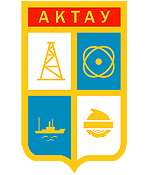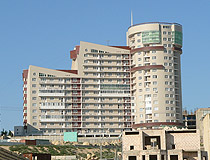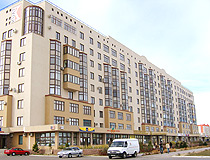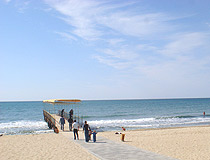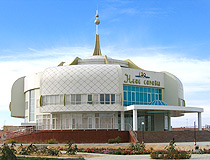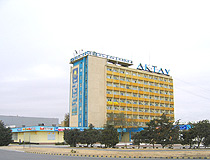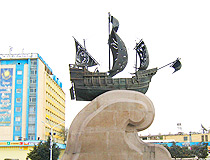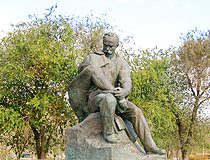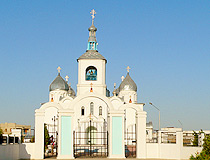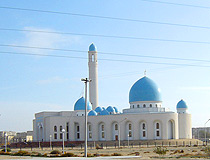Aktau overview
Aktau (also spelled Aqtau) is the capital city of Mangystau oblast. Aktau is situated in southwestern Kazakhstan, to the east of Caspian sea.
Aktau presents a unique case in the history of town planning. A maximum of comfort has been provided for its residents despite the harsh climatic conditions. The residential area of Aktau city is separated from the industrial zone by a shelterbelt. Aktau city was built along the coastline.
Aktau has the population of about 152,000 (2009) on the land area of 14 sq. km.
Aktau phone code - +7 7292; postal code - 130000.
Aktau history
In the 19th century a journey to the eastern shores of Caspian Sea was considered not only difficult but a hazardous undertaking. The deserts east of Caspian Sea were regarded nearly as inaccessible, as the Sahara.
And not only because of the harsh climate (in summer the temperature rises above +40C and in winter drops to 42C below zero) or the absence of vegetation (no trees or shrub grow here) nor even because of the scorching winds that raise dust storms. The trouble was that there was no drinkable water in the region, and there seemed nowhere one could get it.
In 1850, the great Ukrainian poet Taras Shevchenko, exiled here by Russian government, wrote: “A desert without any vegetation whatsoever - only sand and stones. You would gaze around and feel so dreary that you might as well hang yourself.”
Of course, deserts are not the best place to live in. New towns and settlements appear there very rarely and then only in order to develop the local mineral resources. It was exactly for this reason that a town emerged on Mangyshlak peninsula, in one of the most lifeless deserts in Kazakhstan.
Aktau streets
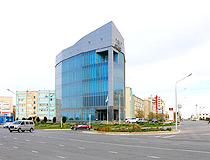
Aktau city, Kazakhstan street
Author: Aleksey Popov
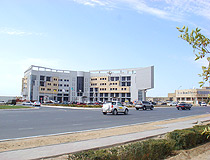
Aqtau city street scenery
Author: Dave Brown
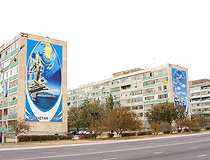
Aktau city apartments houses
Author: Aleksey Popov
Mangyshlak used to be called a “land that has lost water”. Now it is called a “land that has found water”. Aktau city (former Shevchenko, named after Ukrainian poet) has quenched the thirst of the desert. Aktau is the only city in the world that lives entirely on sea water that has been desalinated with the help of a nuclear reactor.
The water-desalinating plant evaporates tens of thousands of cubic meters of salty Caspian water daily, turning it into a distillate which is used for producing potable and industrial water. Only one third of the nuclear power plant’s capacity is used for generating electricity, the rest being used for desalinating seawater.
Aktau city is open to the cool summer breezes blowing from the sea while at the same time being protected from desert heat coming from the east. Consequently, a rather mild marine climate has formed here in Aktau.
But how much work, effort and means have gone into this land! To plant a tree, jack hammers had to be used for drilling the earth instead of ordinary spades, and to cover the roots, soil and seaweed had to be brought here from a distance of hundreds of kilometers. And the green plants had to be watered day after day for many years before they would take root and begin to grow.
In 1978 International Union of Architects awarded the group of Aqtau city planners who had worked out the general layout of Aqtau city the prize named after the outstanding urban planner Leslie Patrick Abercrombie.
Aktau attractions
Aktau is only a little more than 40 years old, but it already has everything necessary for a normal life. Thus Aktau has several cultural centers, a concert hall, cinemas and dozens of libraries, gyms and sports grounds. One may stroll Aqtau city streets for hours on end, admiring the architectural ensembles, green alleys lined with poplars and acacias, emerald-green lawns and a park.
Aqtau also has a botanical garden where plants from various parts of Kazakhstan are getting acclimatized. Today in Aqtau city there are over 25 square meters of greenery per resident, which is above the national average.


